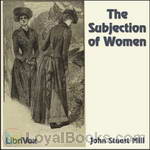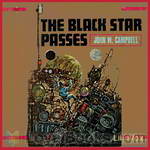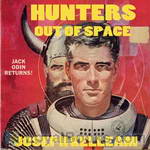|
Books Should Be Free Loyal Books Free Public Domain Audiobooks & eBook Downloads |
|
|
Books Should Be Free Loyal Books Free Public Domain Audiobooks & eBook Downloads |
|
Science |
|---|
|
Book type:
Sort by:
View by:
|
By: John O'Keefe | |
|---|---|
 As Long As You Wish
As Long As You Wish
| |
By: John R. (John Robert) Effinger (1869-1933) | |
|---|---|
 Women of the Romance Countries
Women of the Romance Countries
| |
 Women of the Romance Countries (Illustrated) Woman: In all ages and in all countries Vol. 6 (of 10)
Women of the Romance Countries (Illustrated) Woman: In all ages and in all countries Vol. 6 (of 10)
| |
By: John Stuart Mill (1806-1873) | |
|---|---|
 The Subjection of Women
The Subjection of Women
The Subjection of Women is the title of an essay written by John Stuart Mill in 1869, possibly jointly with his wife Harriet Taylor Mill, stating an argument in favor of equality between the sexes. It offers both detailed argumentation and passionate eloquence in opposition to the social and legal inequalities commonly imposed upon women by a patriarchal culture. Just as in “On Liberty,” Mill defends the emancipation of women on utilitarian grounds, convinced that the moral and intellectual advancement of women would result in greater happiness for everybody. | |
 Auguste Comte and Positivism
Auguste Comte and Positivism
Part 1 lays out the framework for Positivism as originated in France by Auguste Comte in his Cours de Philosophie Positive. Mill examines the tenets of Comte's movement and alerts us to defects. Part 2 concerns all Comte's writings except the Cours de Philosophie Positive. During Comte's later years he gave up reading newspapers and periodicals to keep his mind pure for higher study. He also became enamored of a certain woman who changed his view of life. Comte turned his philosophy into a religion, with morality the supreme guide. Mill finds that Comte learned to despise science and the intellect, instead substituting his frantic need for the regulation of change. | |
By: John Thomson (fl. 1732) | |
|---|---|
 The Tricks of the Town: or, Ways and Means of getting Money
The Tricks of the Town: or, Ways and Means of getting Money
| |
By: John Tyndall (1820-1893) | |
|---|---|
 Fragments of science, V. 1-2
Fragments of science, V. 1-2
| |
 Six Lectures on Light Delivered In The United States In 1872-1873
Six Lectures on Light Delivered In The United States In 1872-1873
| |
 Faraday As A Discoverer
Faraday As A Discoverer
This is the first of two related Faraday projects. It is about Faraday and deals more with biographical references to Faraday, outlining the important junctures in his life. The second, On the Various Forces of Nature, consists of lectures by Faraday covering a non-mathematical survey of the fundamental forces of nature and some relationships among them. Future projects will feature the 19th century scientists upon whose shoulders Einstein stood while developing his Theory of Relativity, including Humboldt, Lorentz, Michelson, Morley, Curie and Eddington. Summary by William A Jones | |
By: John Victor Peterson | |
|---|---|
 Lost in the Future
Lost in the Future
| |
By: John W. Campbell (1910-1971) | |
|---|---|
 The Ultimate Weapon
The Ultimate Weapon
The star Mira was unpredictably variable. Sometimes it was blazing, brilliant and hot. Other times it was oddly dim, cool, shedding little warmth on its many planets. Gresth Gkae, leader of the Mirans, was seeking a better star, one to which his "people" could migrate. That star had to be steady, reliable, with a good planetary system. And in his astronomical searching, he found Sol.With hundreds of ships, each larger than whole Terrestrial spaceports, and traveling faster than the speed of light, the Mirans set out to move in to Solar regions and take over... | |
By: John Wesley Powell (1834-1902) | |
|---|---|
 Canyons of the Colorado, or The exploration of the Colorado River and its Canyons
Canyons of the Colorado, or The exploration of the Colorado River and its Canyons
John Wesley Powell was a pioneer American explorer, ethnologist, and geologist in the 19th Century. In 1869 he set out to explore the Colorado and the Grand Canyon. He gathered nine men, four boats and food for ten months and set out from Green River, Wyoming, on May 24. Passing through dangerous rapids, the group passed down the Green River to its confluence with the Colorado River (then also known as the Grand River upriver from the junction), near present-day Moab, Utah. The expedition’s route... | |
By: John Wilkins (1614-1672) | |
|---|---|
 The Discovery of a World in the Moone Or, A Discovrse Tending To Prove That 'Tis Probable There May Be Another Habitable World In That Planet
The Discovery of a World in the Moone Or, A Discovrse Tending To Prove That 'Tis Probable There May Be Another Habitable World In That Planet
| |
By: John Wood Campbell Jr. (1910-1971) | |
|---|---|
 The Black Star Passes
The Black Star Passes
A sky pirate armed with superior weapons of his own invention... First contact with an alien race dangerous enough to threaten the safety of two planets... The arrival of an unseen dark sun whose attendant marauders aimed at the very end of civilization in this Solar System. These were the three challenges that tested the skill and minds of the brilliant team of scientist-astronauts Arcot, Wade, and Morey. Their initial adventures are a classic of science-fiction which first brought the name of their author, John W. Campbell, into prominence as a master of the inventive imagination. | |
By: John Wood Campbell. Jr. (1910-1971) | |
|---|---|
 Islands of Space
Islands of Space
As Earth's faster-than-light spaceship hung in the void between galaxies, Arcot, Wade, Morey and Fuller could see below them, like a vast shining horizon, the mass of stars that formed their own island universe. Morey worked a moment with his slide rule, then said, "We made good time! Twenty-nine light years in ten seconds! Yet you had it on at only half power...." Arcot pushed the control lever all the way to full power. The ship filled with the strain of flowing energy, and sparks snapped in the air of the control room as they raced at an inconceivable speed through the darkness of intergalactic space... | |
 Invaders from the Infinite
Invaders from the Infinite
The famous scientific trio of Arcot, Wade and Morey, challenged by the most ruthless aliens in all the universes, blasted off on an intergalactic search for defenses against the invaders of Earth and all her allies. World after world was visited, secret after secret unleashed, and turned to mighty weapons of intense force--and still the Thessian enemy seemed to grow in power and ferocity. Mighty battles between huge space armadas were but skirmishes in the galactic war, as the invincible aliens savagely advanced and the Earth team hurled bolt after bolt of pure ravening energy--until it appeared that the universe itself might end in one final flare of furious torrential power.... | |
By: John Woodhouse Audubon (1812-1862) | |
|---|---|
 Audubon's Western Journal: 1849-1850
Audubon's Western Journal: 1849-1850
John Woodhouse Audubon , son of the famous painter John James Audubon and an artist in his own right, joined Col. Henry Webb's California Company expedition in 1849. From New Orleans the expedition sailed to the Rio Grande; it headed west overland through northern Mexico and through Arizona to San Diego, California. Cholera and outlaws decimated the group. Many of them turned back, including the leader. Audubon assumed command of those remaining and they pushed on to California, although he was forced to abandon his paints and canvases in the desert…... | |
By: Jonathan Mayhew Wainwright (1792-1854) | |
|---|---|
 A Sermon Preached on the Anniversary of the Boston Female Asylum for Destitute Orphans, September 25, 1835
A Sermon Preached on the Anniversary of the Boston Female Asylum for Destitute Orphans, September 25, 1835
| |
By: Jonathan Prince Cilley (1835-1920) | |
|---|---|
 Bowdoin Boys in Labrador An Account of the Bowdoin College Scientific Expedition to Labrador led by Prof. Leslie A. Lee of the Biological Department
Bowdoin Boys in Labrador An Account of the Bowdoin College Scientific Expedition to Labrador led by Prof. Leslie A. Lee of the Biological Department
| |
By: Joseph Bell (1837-1911) | |
|---|---|
 A Manual of the Operations of Surgery For the Use of Senior Students, House Surgeons, and Junior Practitioners
A Manual of the Operations of Surgery For the Use of Senior Students, House Surgeons, and Junior Practitioners
| |
By: Joseph Black (1728-1799) | |
|---|---|
 Experiments upon magnesia alba, Quicklime, and some other Alcaline Substances
Experiments upon magnesia alba, Quicklime, and some other Alcaline Substances
| |
By: Joseph Bradford Cox (1840-) | |
|---|---|
 Report on Surgery to the Santa Clara County Medical Society
Report on Surgery to the Santa Clara County Medical Society
| |
By: Joseph Chrisman Hutchison | |
|---|---|
 A Treatise on Physiology and Hygiene For Educational Institutions and General Readers
A Treatise on Physiology and Hygiene For Educational Institutions and General Readers
| |
By: Joseph E. Kelleam (1913-1975) | |
|---|---|
 Hunters Out of Space
Hunters Out of Space
Originally published in the May, 1960 issue of Amazing Science Fiction Stories. Jack Odin has returned to the world of Opal, the world inside our own world, only to find it in ruins. Many of his friends are gone, the world is flooded, and the woman he swore to protect has been taken by Grim Hagen to the stars. Jack must save her, but the difficulties are great and his allies are few. | |
By: Joseph Fisher | |
|---|---|
 Landholding in England
Landholding in England
| |
By: Joseph Fort Newton (1876-1950) | |
|---|---|
 The Builders A Story and Study of Masonry
The Builders A Story and Study of Masonry
| |
By: Joseph Lister (1827-1912) | |
|---|---|
 On the Antiseptic Principle of the Practice of Surgery
On the Antiseptic Principle of the Practice of Surgery
Joseph Lister was born near London in 1827. He studied medicine at the University of London and pursued a career as a surgeon in Scotland. He became professor of Surgery in Glasgow and later (1877) at Kings College Hospital, in London. Lister’s contribution to the advancement of surgery cannot be overestimated. Before his work on antisepsis, wounds were often left open to heal, leading to long recoveries, unsightly scarring, and not infrequently amputation or death due to infection. Lister’s work enabled more wounds to be closed primarily with sutures, drastically reducing healing time, scarring, amputations, and deaths due to infection... | |
By: Joseph Maclise | |
|---|---|
 Surgical Anatomy
Surgical Anatomy
| |
By: Joseph Martin McCabe (1867-1955) | |
|---|---|
 Romance of the Romanoffs
Romance of the Romanoffs
The eighteenth, nineteenth and early twentieth centuries were periods of stark contrast between the opulent lifestyle of the rich and the extreme poverty of the peasants throughout the world. In addition, Russia straddled eastern and western cultures, not fitting neatly into either. The church was an important force, and those adhering to traditional eastern religions were peaceful and accustomed to 'doing as they were told'; followers of western thought were more eager for a democratic society. Add an autocratic czar and the conditions were ripe for revolution, corruption and murder... | |